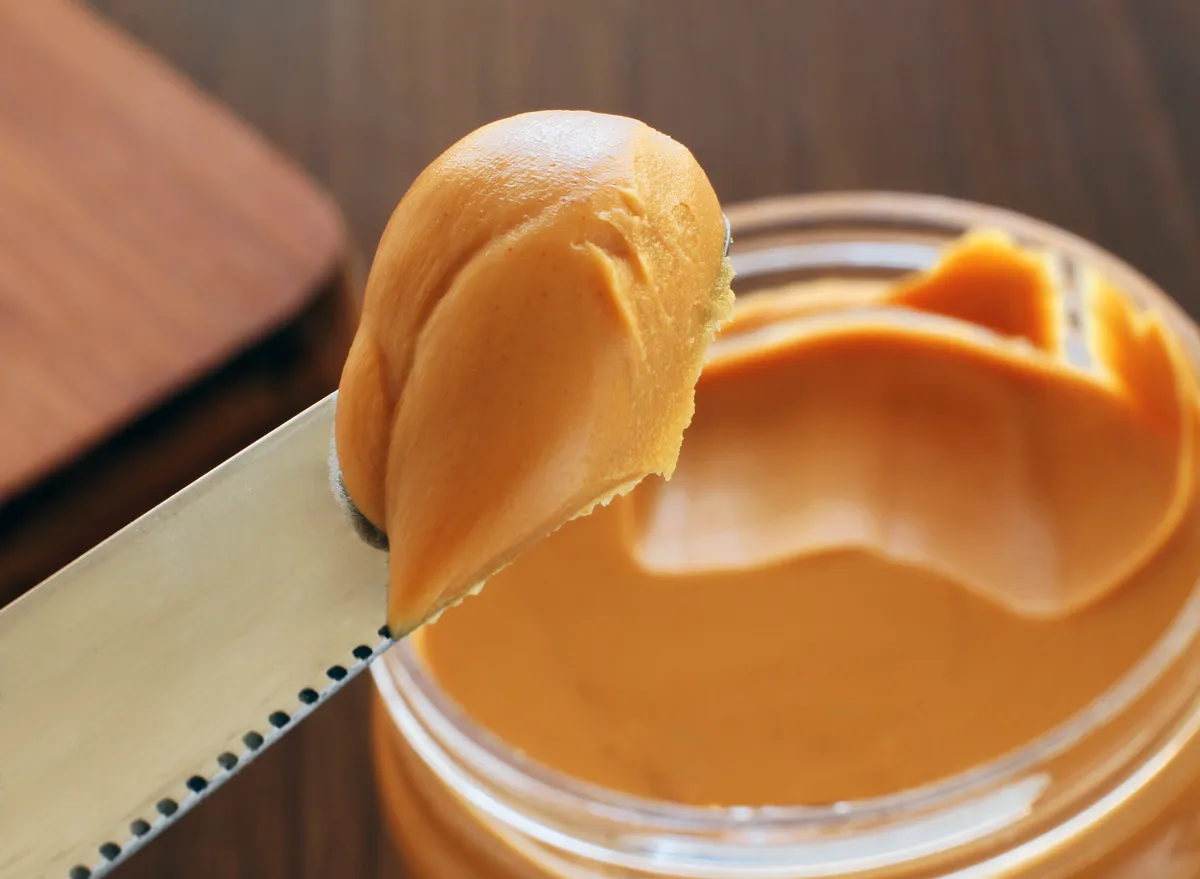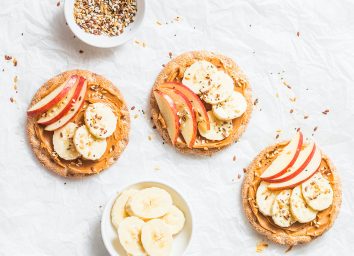One Major Side Effect of Eating Peanut Butter Every Day, Says an Expert

There's no denying that peanut butter is delicious. It's superb on a sandwich, makes a tasty dip for apple slices and celery stalks and, if you've ever followed the advice of Lindsay Lohan's characters in 1998's The Parent Trap, goes great with Oreos. However, there is one major side effect of eating peanut butter every day: in some sensitive people, it may have an inflammatory effect on the body.
Much like almond butter, peanut butter has monounsaturated fat, which is a healthy dietary fat that keeps you feeling full and satisfied after your meal. Peanut butter also boasts fiber as well as various vitamins and minerals such as potassium, biotin, magnesium, and zinc.
But for some people, peanut butter may not be something you should be consuming every day. For starters, eating peanut butter all the time can easily lead to weight gain, especially if your peanut butter of choice is packed with added sugar and unhealthy hydrogenated oils. (Related: The #1 Worst Peanut Butter to Eat, According to a Dietitian.)
Additionally, if you consume peanut butter too frequently, your body might start to develop an intolerance to it. "One side effect of eating peanut butter every day can be inflammation that stems from a peanut intolerance. Generally speaking, food intolerances, which notably are different than food allergies, can arise when we eat the same foods over and over again for weeks and months," says registered dietitian Lauren Minchen, MPH, RDN, CDN, nutrition consultant for Freshbit, the AI-driven visual diet diary app.
While developing a food intolerance by eating too much peanut butter is not something that happens to everyone who eats peanut butter every day, it is still possible. If you feel like you're experiencing a variety of symptoms such as fatigue, skin rashes and acne, and weight gain and you eat peanut butter every day, you may want to consider getting blood work done.
"These intolerances are often marked in blood work by a rise in certain immunoglobulin antibodies, particularly IgG in intolerances. You may notice that your IgG is elevated for certain foods in your blood work results, which indicates an intolerance to those foods," Minchen tells us.
According to Minchen, if you don't promptly deal with the intolerance, you will start to experience an array of physical changes and discomfort. "If not addressed by temporarily removing that food from your diet, this rise in immunoglobulins can trigger a larger inflammatory response, which can mean fatigue, runny/stuffy nose, skin rashes and acne, and weight gain," she explains.
However, Minchen also notes that even if your body starts to become intolerant after consuming too much peanut butter, the response can be reversed over time.
"The good news is that, unlike with food allergies, temporary removal of the offending foods for three to six weeks generally decreases the IgG response, at which point you can reintroduce the offending foods to build tolerance again," she says. "The easiest way to prevent an intolerance is to simply eat seasonally!"
Instead of eating peanut butter (or any food, really) every day, Minchen suggests diversifying your diet. As she puts it, "Try to switch up the foods you eat with every season to give your body a natural break from the same foods every day." So have almond butter one day, peanut butter the next, and maybe even give cashew butter a try! For other things you can expect when you eat peanut butter on the reg, check out Side Effects of Eating Too Much Peanut Butter, Say Dietitians.
For more healthy eating news, make sure to sign up for our newsletter!








